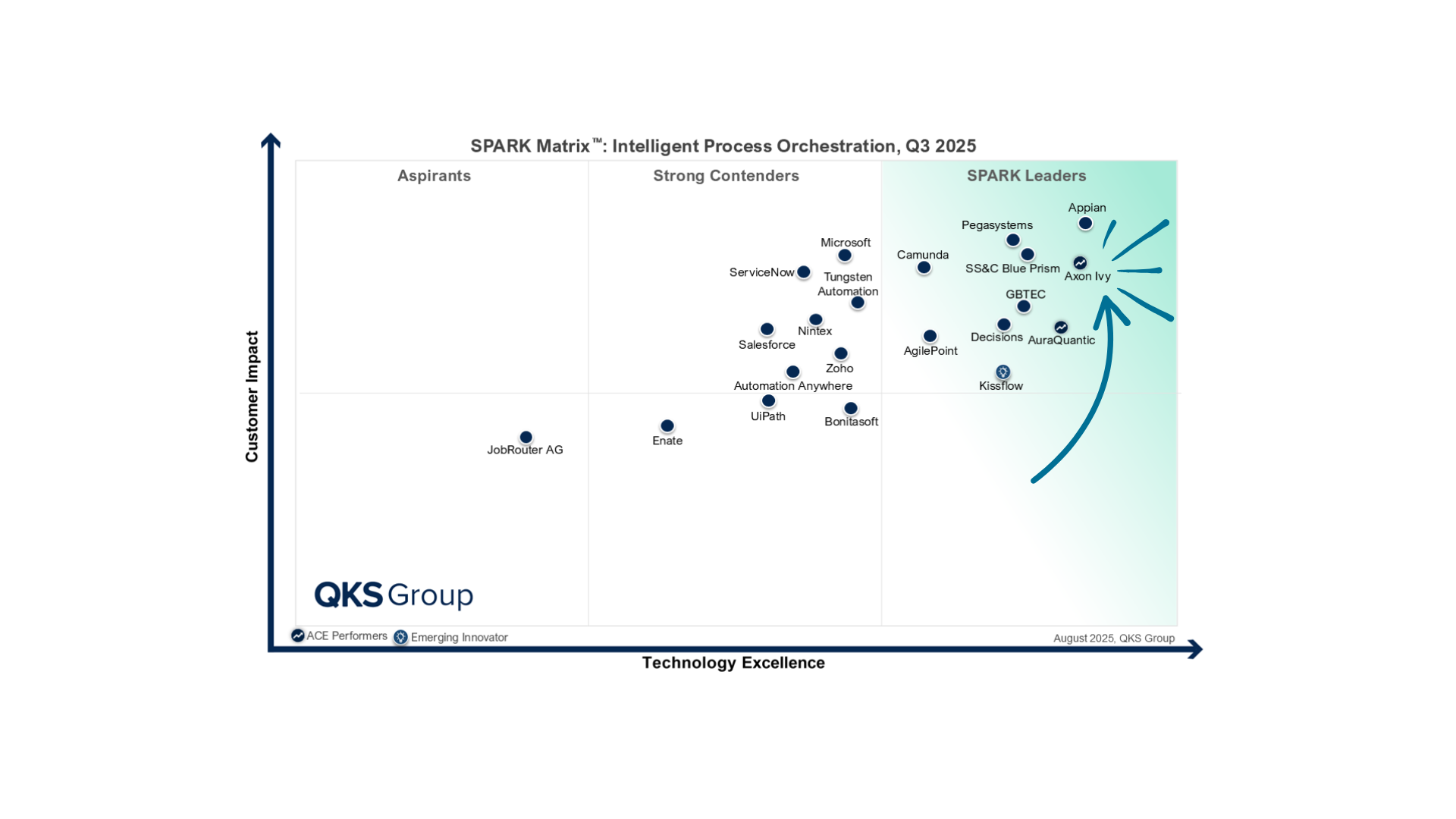Other Topics That Might Interest You
See all

News
15
Sep
25
Solving for Complexity: Axon Ivy’s Approach to Real-World IPO
In an era where automation alone no longer delivers a decided strategic advantage, enterprises are shifting their focus ...
Read more

Digital Process Excellence: Why Market Leaders Go Beyond the Standard
Uncover hidden efficiency killers: Why standard software slows you down—and how smart automation puts your business back ...
Read more

Digitalization Requires More Than Just Projects
Why true digital transformation requires more than isolated initiatives and how the right balance between strategic ...
Read more

News
29
Aug
25
Axon Ivy: Technology Leader and Ace Performer in the 2025 SPARK Matrix
Axon Ivy has done it again! We have received two honors in the prestigious QKS Group SPARK Matrix™ Report 2025: Technology ...
Read more

Going Digital Isn’t Enough: Why HR Still Falls Behind
The Challenge: According to McKinsey, 60% of HR resources are tied up in manual tasks, leaving only 10% for strategic ...
Read more
